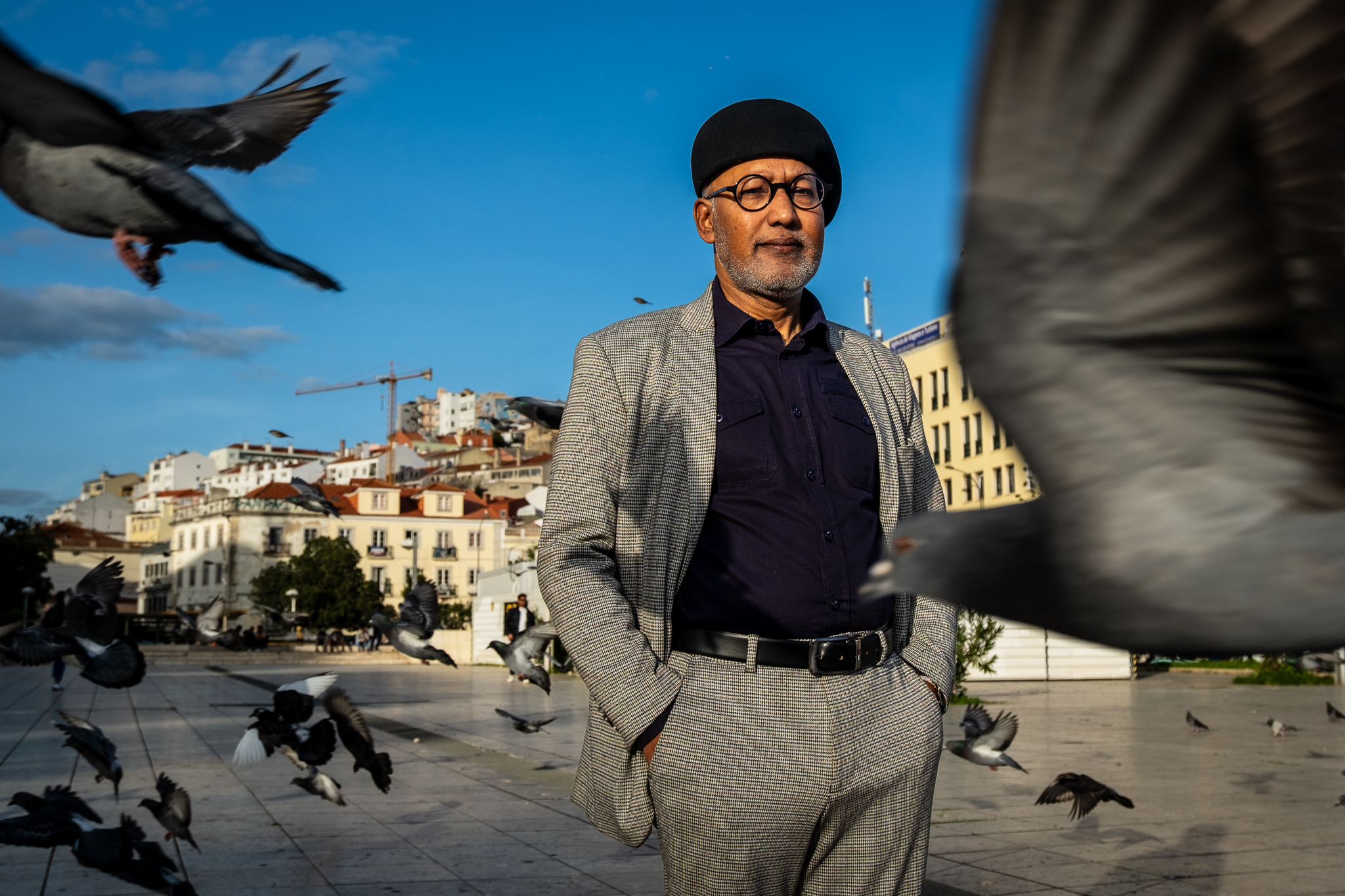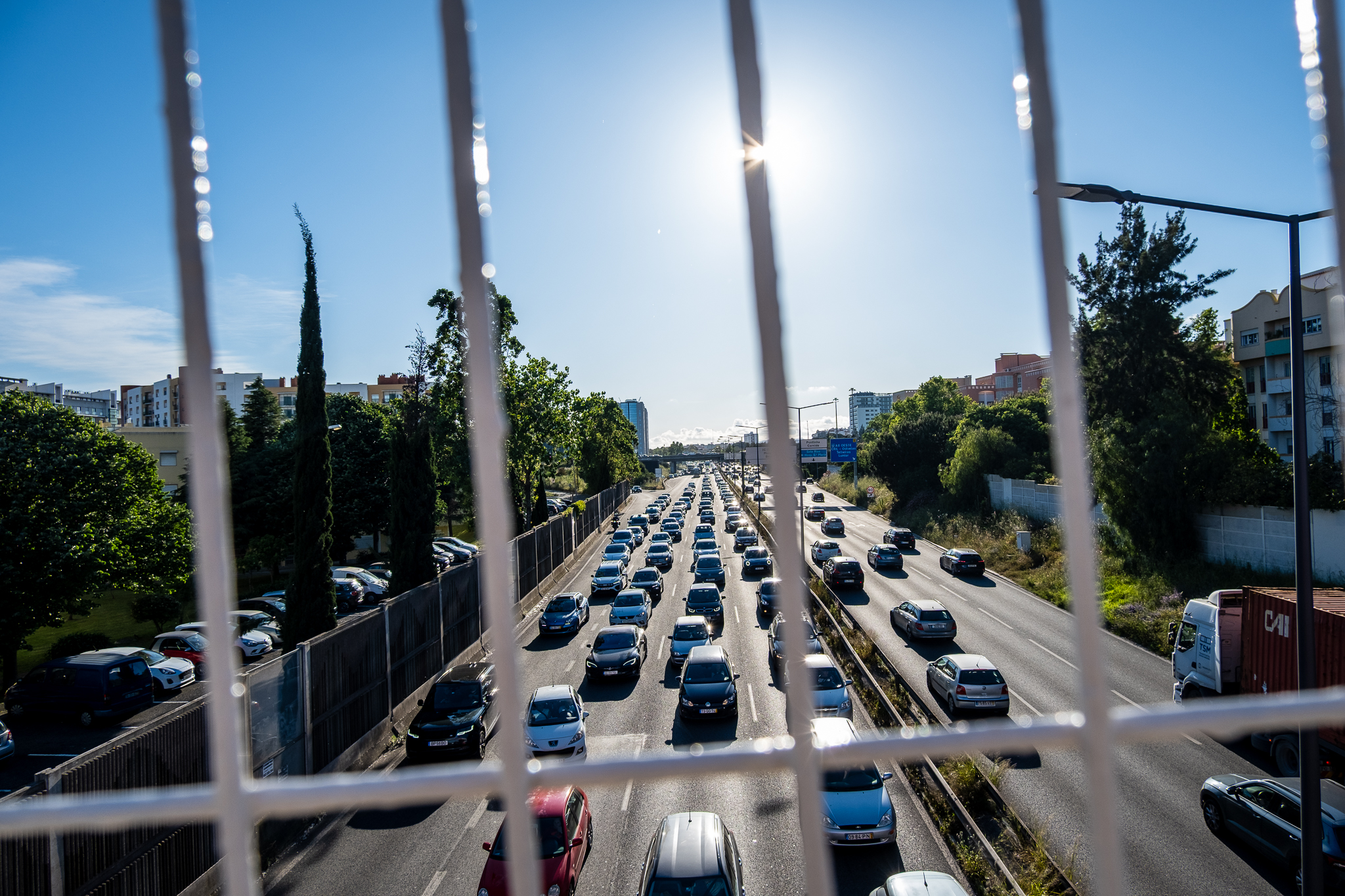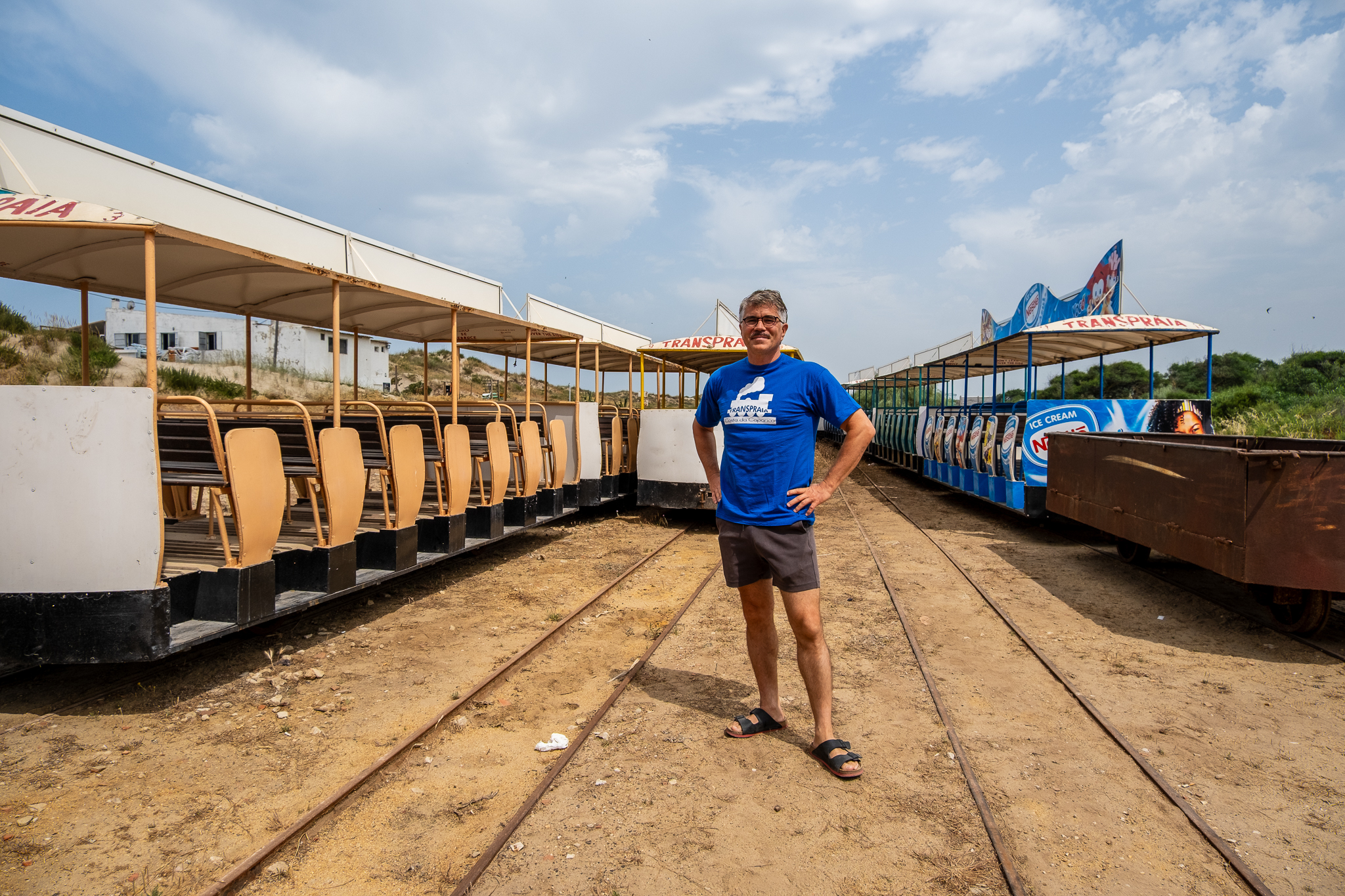Results from the first year of the municipal Bicycle Train program were presented at the TRA Conference, a European conference on mobility and transport held in Lisbon. Authors of the paper believe that "strengthening the bicycle culture among children and parents will increase the likelihood that they will choose the bicycle for their trips in the future."

63% of parents who participated in the municipal Bicycle Trains program in the 2020/21 school year reported that at least once a week they left their car at home and their children rode their bikes to school in a group with other children on one of these Trains. Other parents (26%) said that, even though they live so close to the school that walking is the usual option on a day-to-day basis, their children have not stopped going on the Bike Trains once a week, even if it meant waking up earlier or taking a longer route to class.
These were just some of the conclusions of a small study conducted between the cooperative Bicycling, a Municipal Mobility Department of the City of Lisbon and the Instituto Superior Técnicowhich was presented at TRA Conferencea European conference on mobility and transport that took place in Lisbon from November 14th to 17th. The study was based on a survey of parents whose children participated in the Bicycle Trains in the 2020/21 school year.
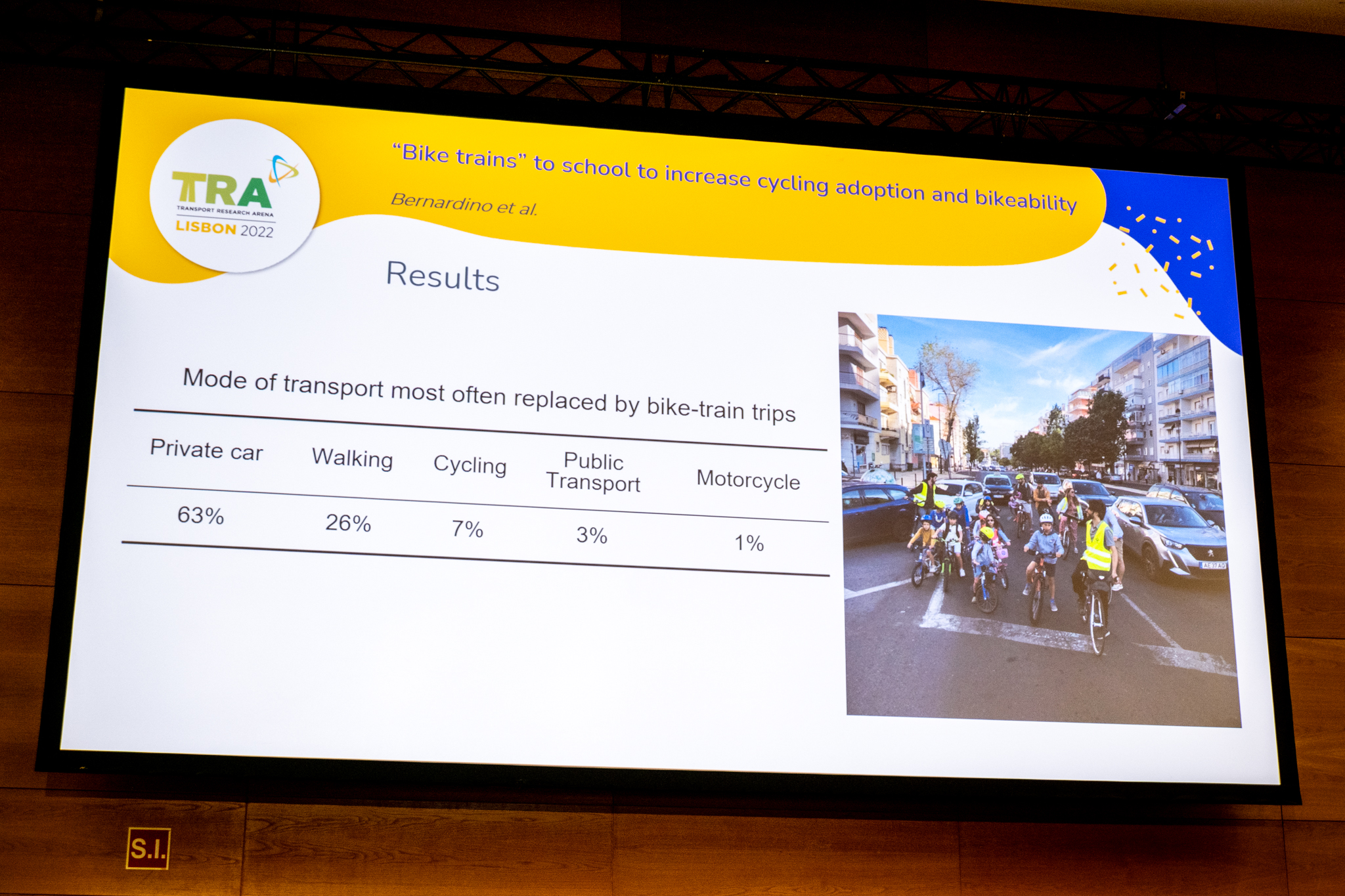
For Ricardo Sobral, researcher at Center for Research and Innovation in Civil Engineering for Sustainability (CERIS) at Instituto Superior Técnico and a member of Biciculture, the mentioned findings show that the Trains "serve both as a mobility service but also as an activity that parents and children are willing to do, such as music lessons or after-school sports activities"he said during the presentation of the data at the TRA Conference.
The Bicycle Trains appeared in Lisbon in 2015 when a father started, on a voluntary basis, to take his five-year-old son and other children by bicycle to school in Parque das Nações. This train then gained regularity on Fridays with the support of the Parish Council and other volunteers. In 2019, the Lisbon City Council decided to "formalize" the initiative and launch it as a municipal program, extending it to more schools in the city. After a first pilot in the 2019/20 school year, the Bike Trains were officially launched in the following school year (2020/21).
Generally, in each school there is one Train per week, but there are schools in which there are trains more frequently or with routes passing through different starting points. The management of the Bicycle Trains program is the responsibility of the Lisbon City Hall; and its operation is the responsibility of the cooperative Bicicultura, which, besides designing the routes, trains and provides adult monitors to accompany groups of children on bicycles to school. However, there are still Bike Trains in the city run by parents, teachers and other volunteers, with or without the support of Bicicultura.
In their work, Ricardo Sobral and his colleagues sought to understand whether a Bicycle Train initiative would be adhered to by children and their guardians in the context of a city like Lisbon, with low bicycle use, limited infrastructure, and sloping areasand also whether it would be able to promote a change in behavior by increasing the use of bicycles by the target population. To do this, they used data from registration forms, records of Bike Trains trips, questionnaires sent to parents after the program was completed, and feedback from the monitors who accompanied the groups of children.
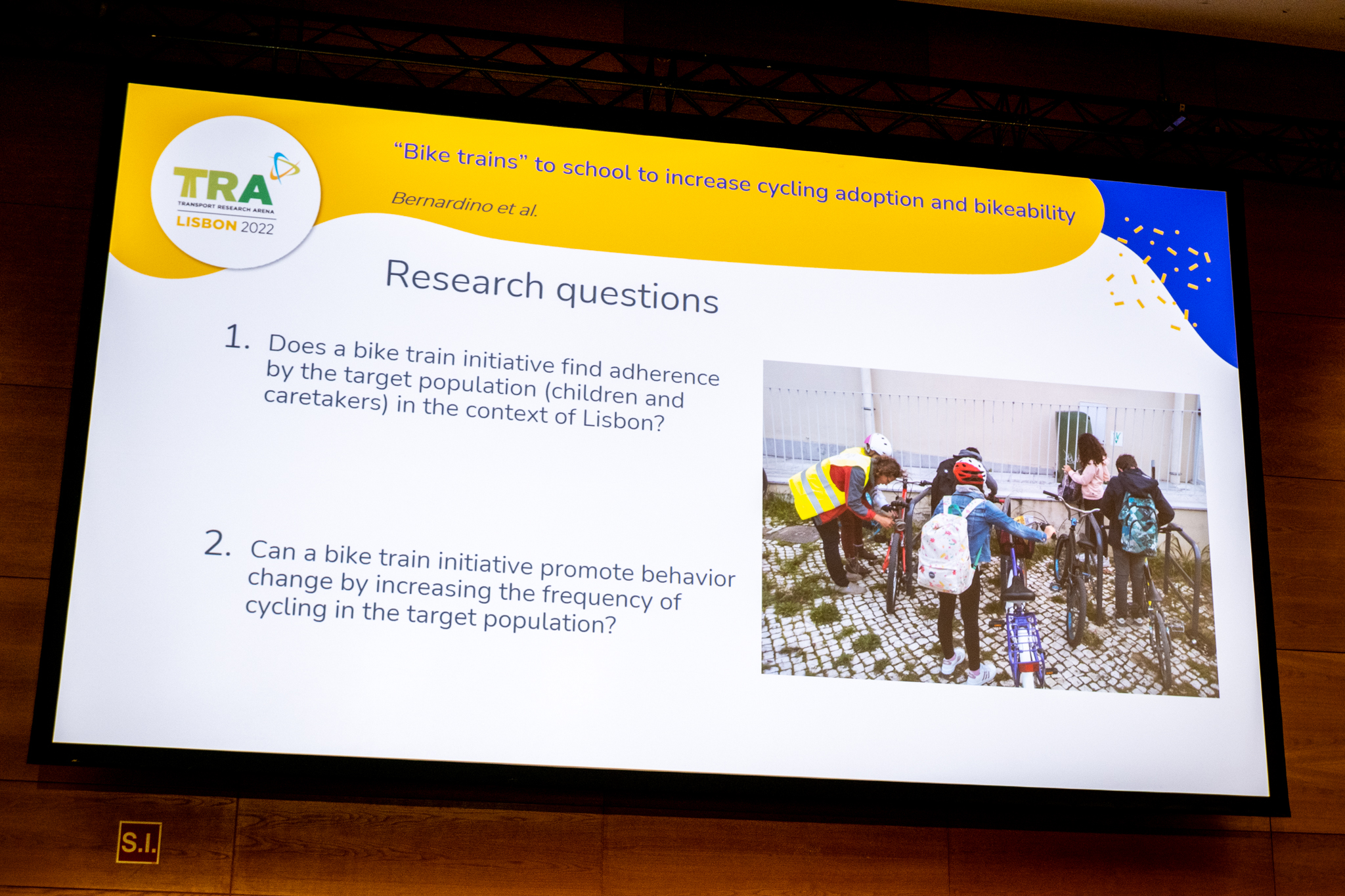
In the school year under review (2020/21), there were 16 train lines in 12 schools of the city of Lisbon, having participated 183 children of the 211 enrolled when the program was launched. In total, 298 Train runs were made, with an increasing monthly trend throughout the school year, with the exception of the period between February and March 2021 when schools were closed following the Covid-19 pandemic. The increase in the number of circulations over the school year kept pace with the increase in the number of schools and lines. Ricardo also found that 66% of the participants were regularOn average each Train took six children, with one school averaging almost 18 children per Train. On average, each Train took six children, with one school averaging almost 18 children per Train. Most of the participating children (62%) were between 7 and 9 years old; and the percentage of female participants was 46% (the Instituto Superior Técnica's manual and regular counts estimate that 25% of the people who cycle in Lisbon are women).
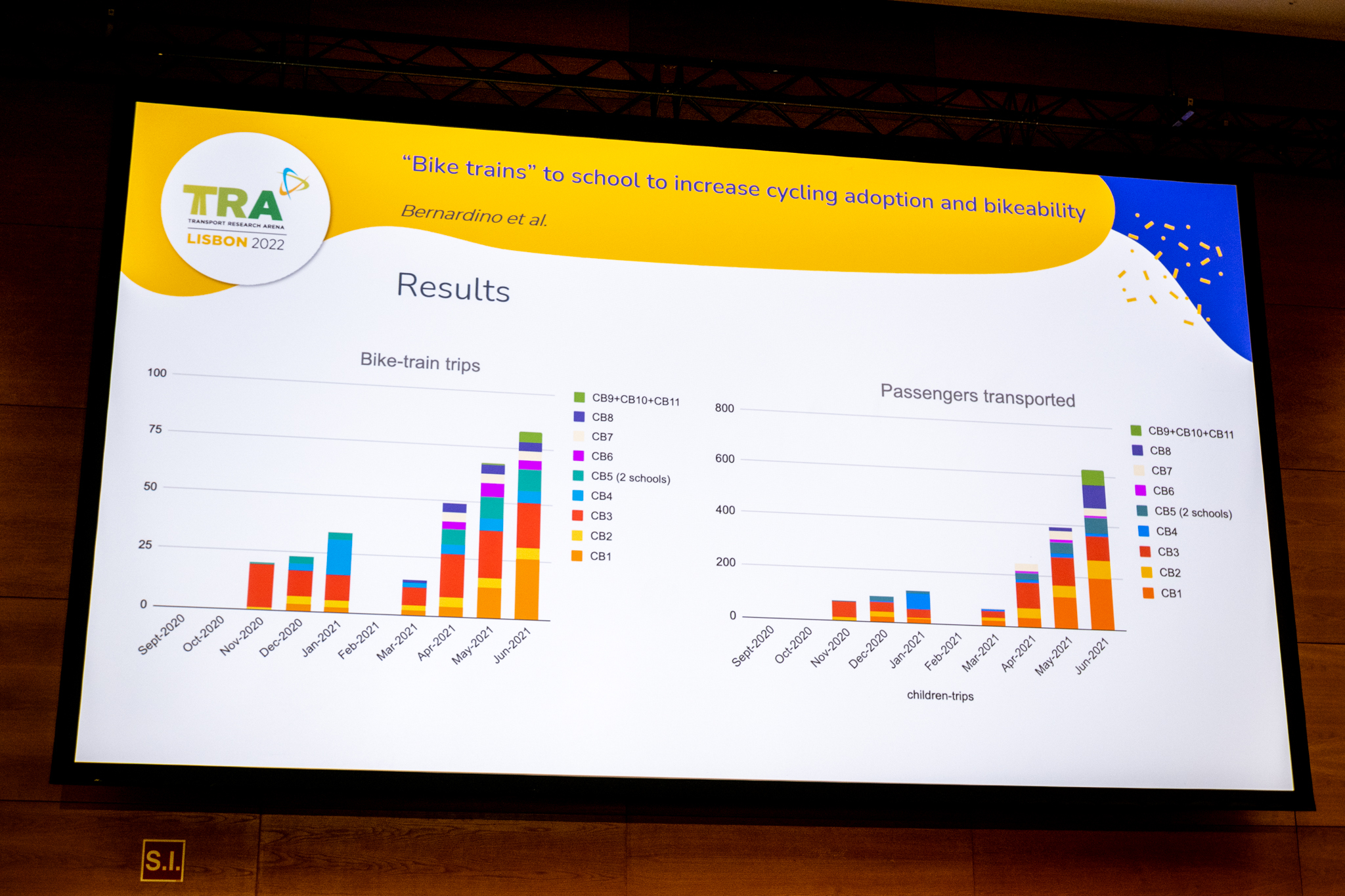
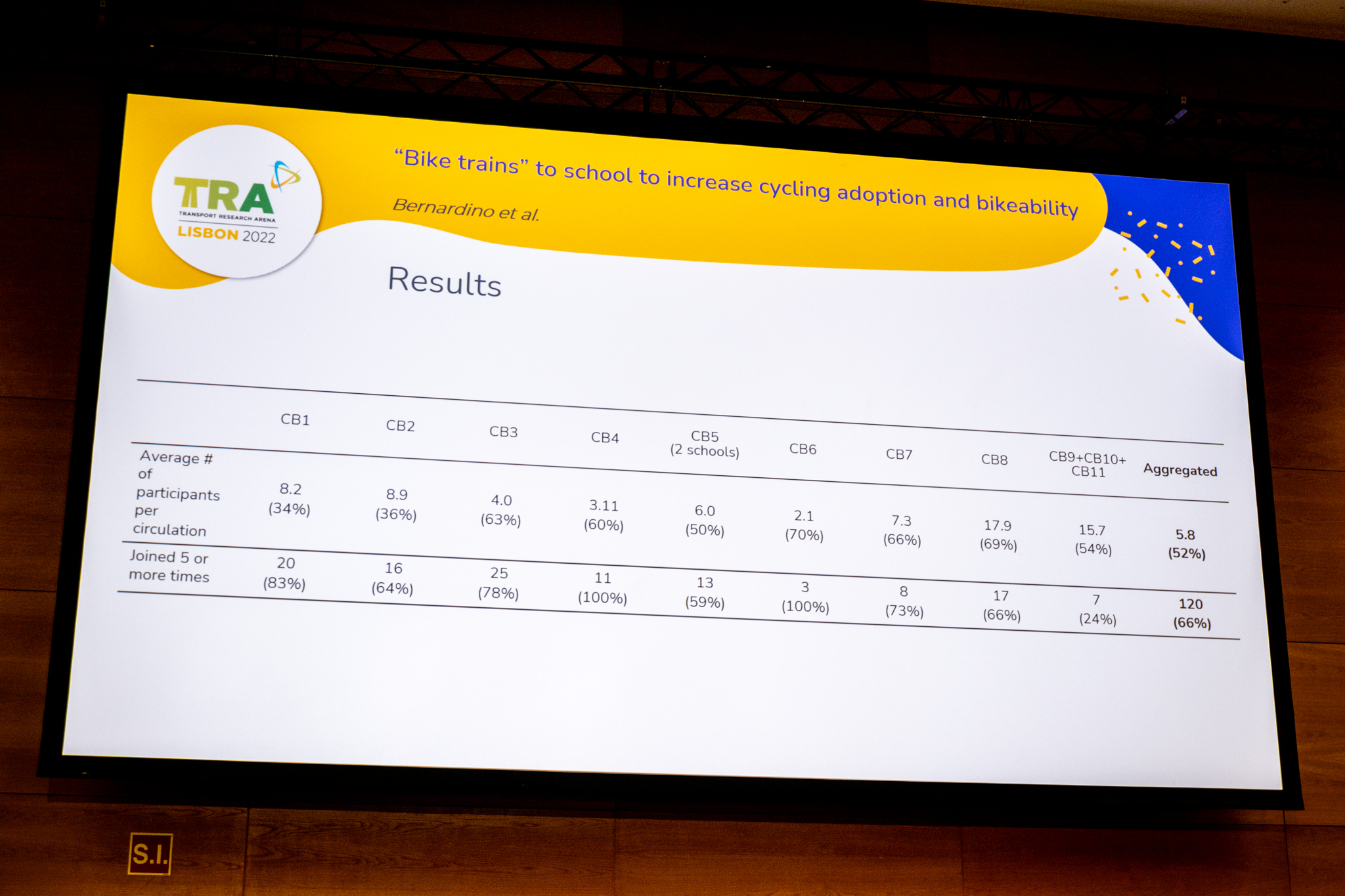
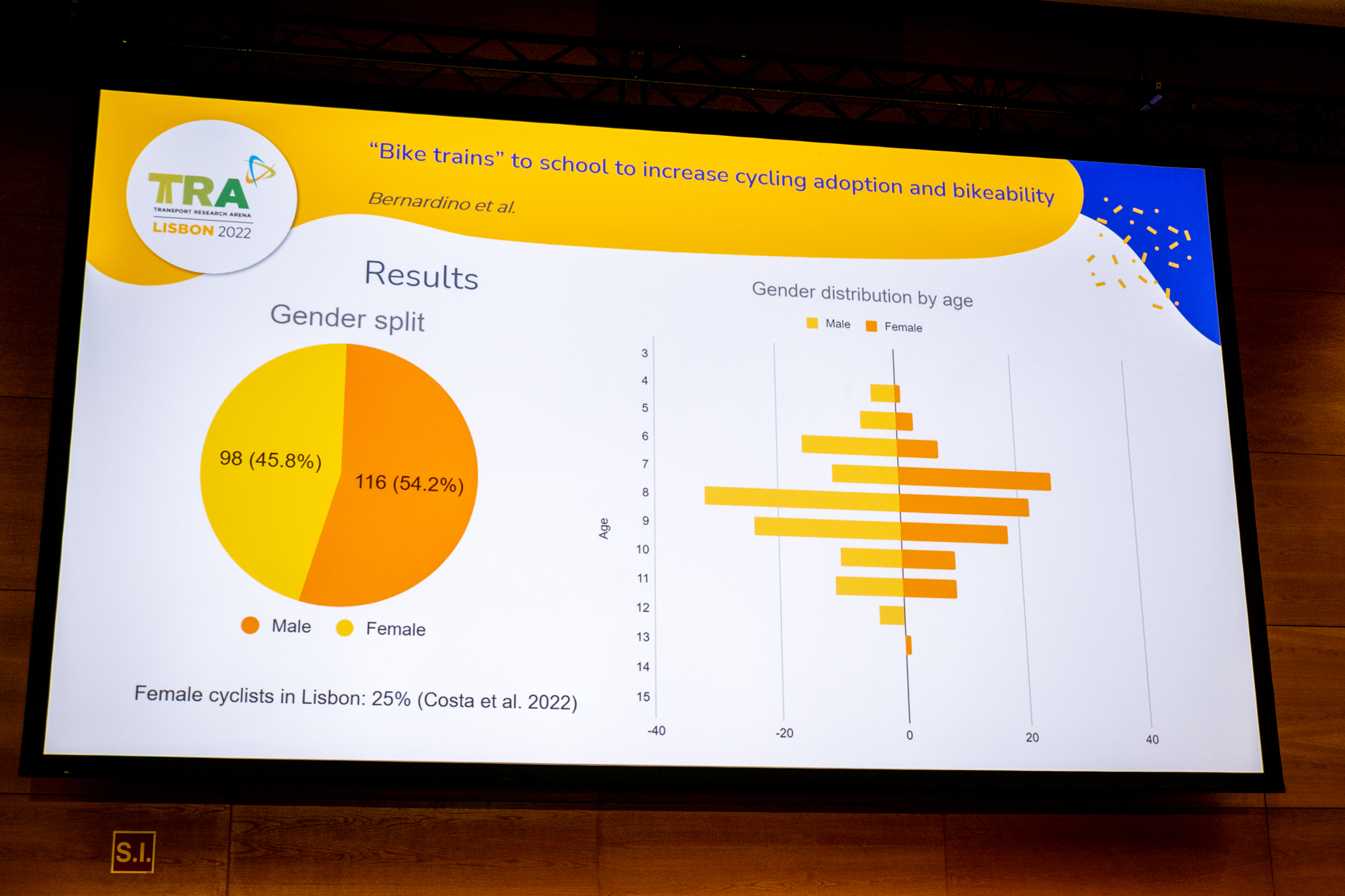
At the same time, a considerable share of parents said that after their children participated in the Bike Trains program, both they and their parents have started to use the bicycle more as a utility (and also as leisure). In addition, "nine out of 10 respondents felt that their children have become more able to use their bicycle autonomously" and that, "regarding bicycle use by parents, 10% stated that they experienced using a bicycle for mobility purposes for the first time" after seeing their children cycling to school, Ricardo explained; at the same time, 35% of the surveyed parents said they already use the bicycle for mobility purposes and 55% had never used it for that purpose. On the other hand, "15% of the parents surveyed who had never used a bicycle for commuting before Bike Trains did so for the first time after the program." and 46% stated that since their son started participating in this initiative, he has started using bicycles more often for mobility.
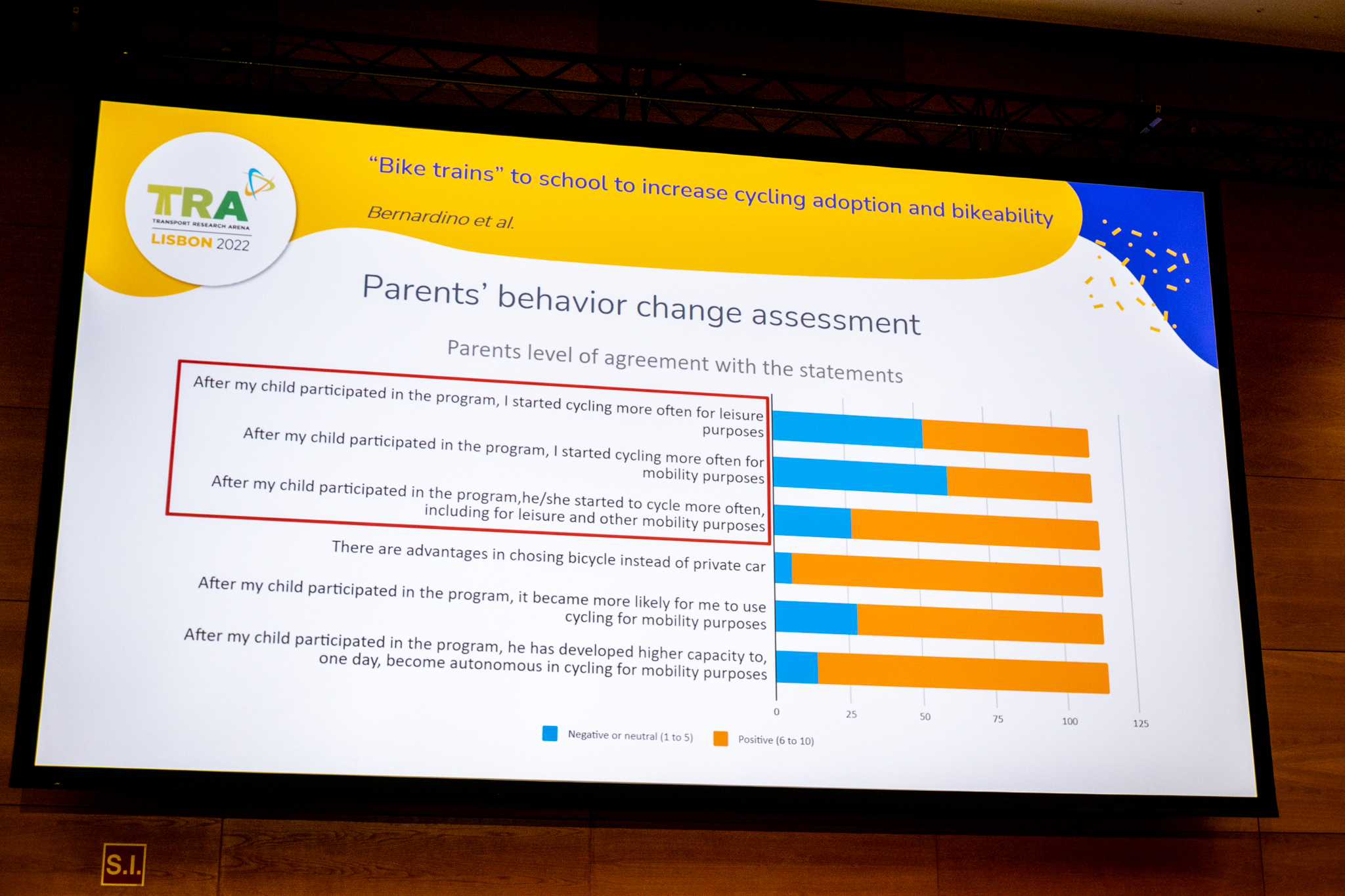
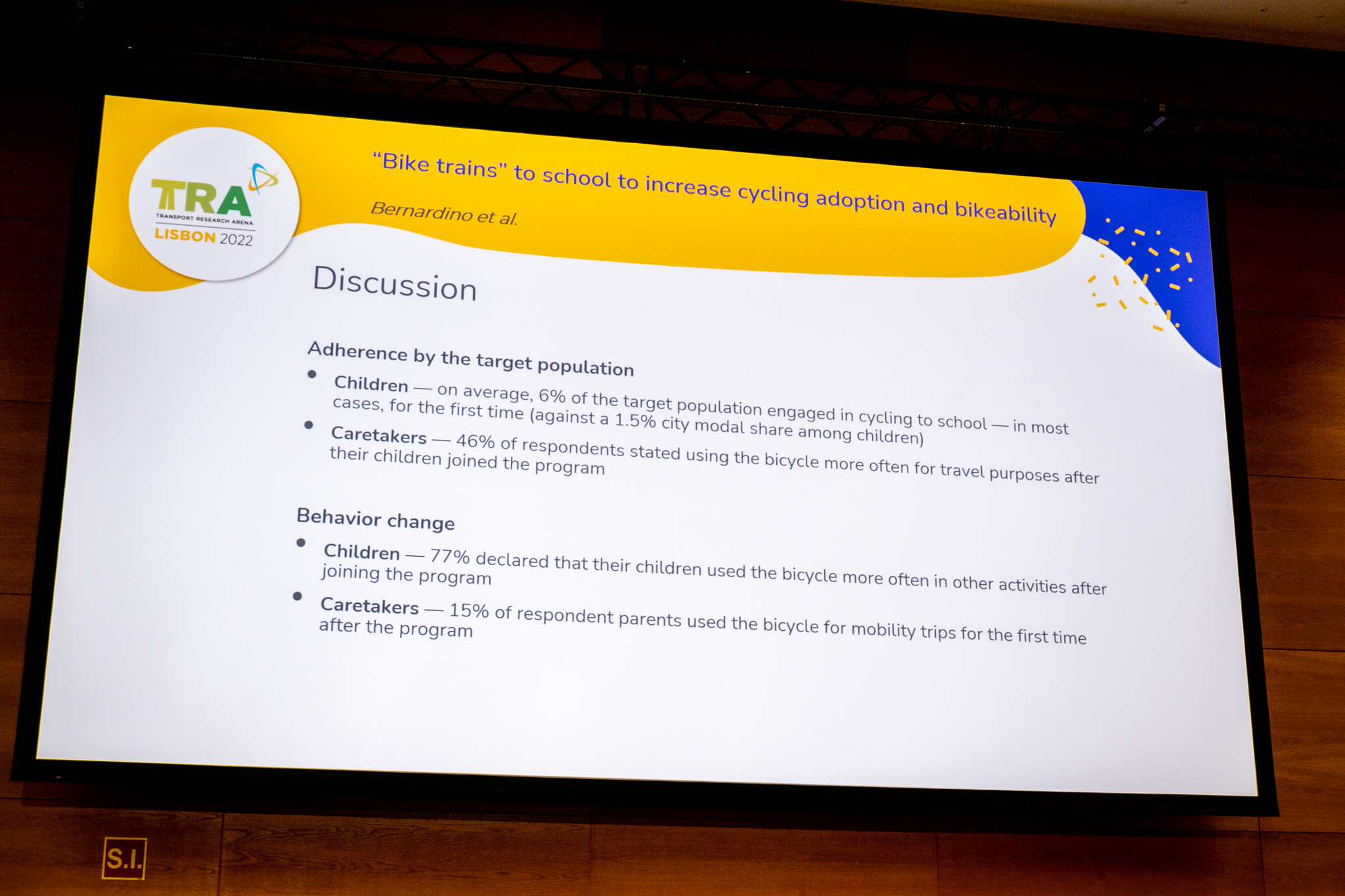
Ricardo pointed out that the results are based on stated and unobserved behaviors and may have potentially been influenced by a self-selected sample, as only approximately 55% of parents decided to respond to the questionnaire at the end of the school year on the completion of the program. However, the data presented "strongly suggest that there are significant effects" of the Bicycle Trains initiative in triggering short-term adoption of bicycling by parents. On the other hand, "strengthening the bicycle culture among children and parents will increase the likelihood that they will choose the bicycle for their trips in the future"one reads among the conclusions presented.
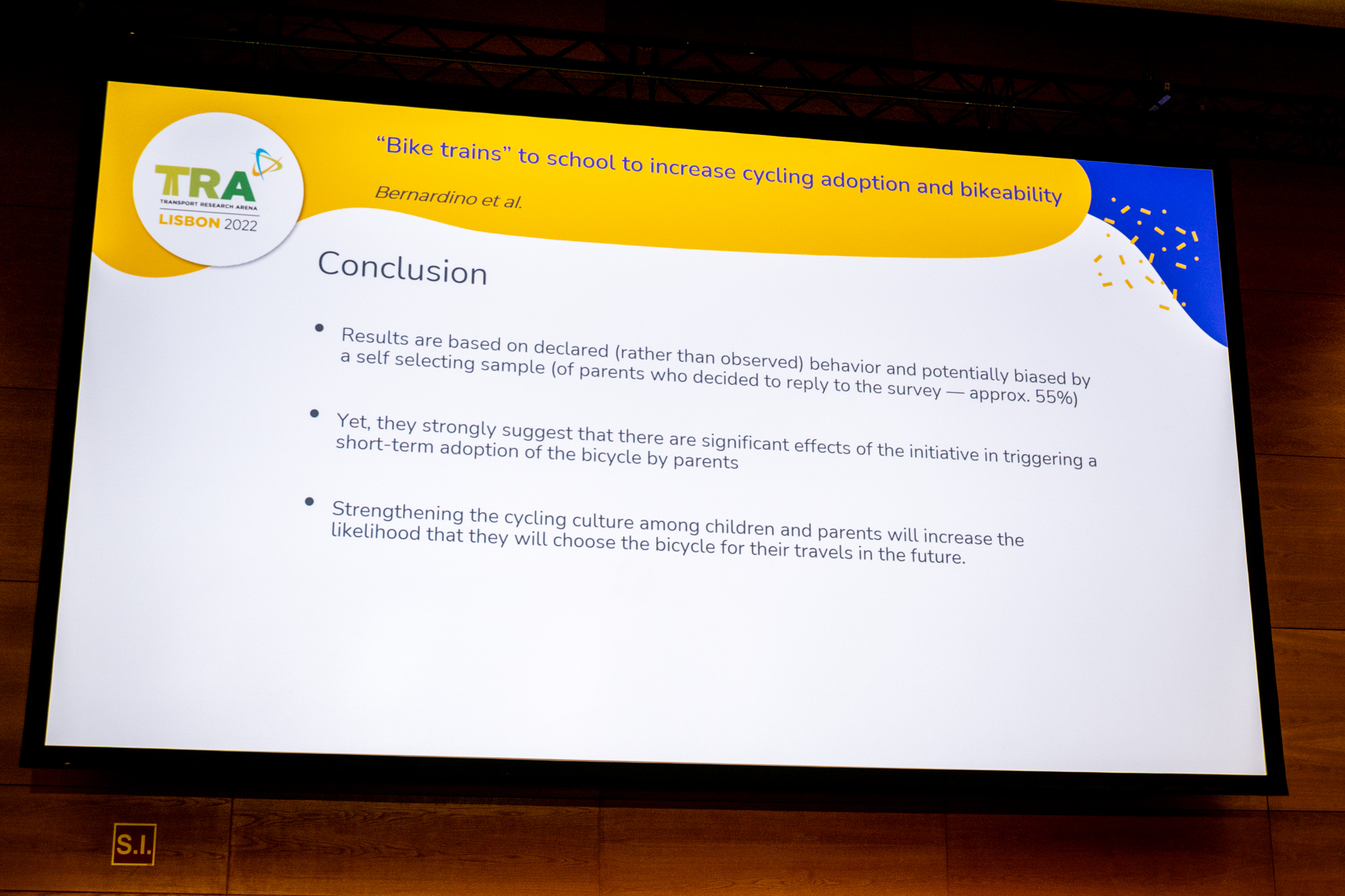
The paper presented at the TRA Conference awaiting publication in a scientific journalfollowing that same conference. The article is authored by João Bernardino, Ricardo Sobral and Luís Vieira, from Bicicultura, and by Inês Castro Henriques, Sofia Knapicc and Miguel Cambão, from the Municipal Mobility Department of the Lisbon City Hall. Ricardo Sobral and Luís Veira are also members of the Center for Research and Innovation in Civil Engineering for Sustainability (CERIS) of the Instituto Superior Técnico.
The municipal Bike Trains program also took place in the 2021/22 school year with 15 schools, 24 routes, and 222 actual participations. The initiative is expected to start in the current school year 2022/23; registration has been open since the end of September but the proposal formalizing the transfer of funds to Biciculture still needs to be approved by the city council in order to make the programme operational.








